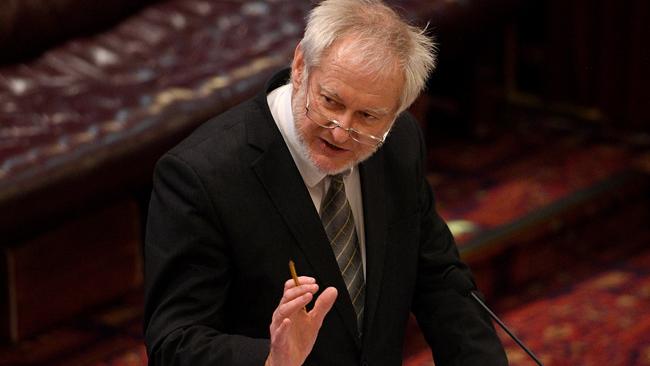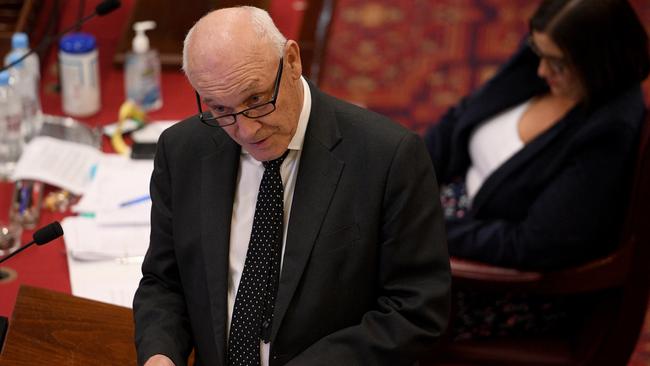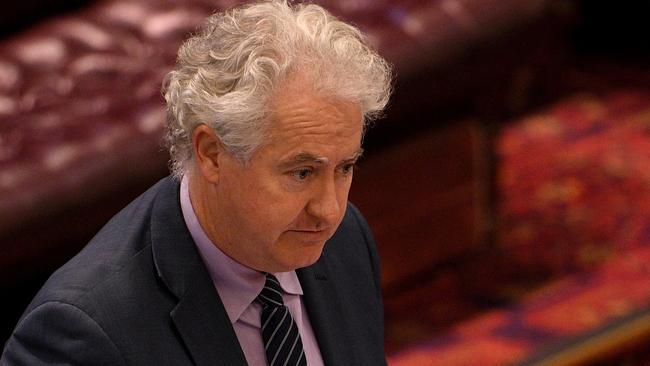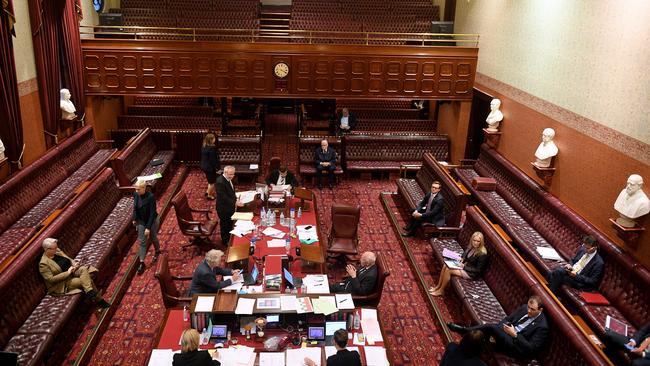NSW Voluntary Assisted Dying Bill faces final hurdle in upper house
A Labor MP has made a speech several hours long, arguing why one group of people should be excluded from voluntary assisted dying laws.
A Labor MP has argued at length for restricting access to voluntary assisted dying under a proposed law expected to pass in NSW.
Upper house MP Greg Donnelly’s arguments in favour of the first three of his 33 amendments took several hours on Wednesday before the changes were voted down.
By the late afternoon, the majority of the almost 100 amendments to the Bill were yet to be debated, and the MPs did not expect to finish before midnight.
Mr Donnelly failed to convince his colleagues that for the proposed law to be truly voluntary, patients with significant mental impairments should be excluded.

He was also defeated in an attempt to change the law so that it would require patients to “clearly and unambiguously” signal they want to go through with it.
“In my view, it’s extraordinarily reckless, dangerous and unjustified, in relation to a person making an irreversible decision to have their life ended, to simply presume that they have the capacity to make that decision,” Mr Donnelly said.
His Labor colleague Adam Searle, who brought the Bill to the upper house, won favour for his argument that people with mental illnesses weren’t necessarily unable to make their own life choices.
“There are many conditions where people could be considered unable to communicate clearly, particularly those who have a terminal illness or condition,” he said.
“We do not think there is a problem that needs amending in this part of the Bill.”
The Labor and Liberal parties both allowed their members to vote as they pleased on the Bill, meaning the opinions were not split down party lines.

Mr Donnelly found an ally in Liberal Finance Minister Damien Tudehope, who defended him against accusations of suggesting “hostile” amendments simply to derail the process.
“I reject that, and I say that commentary is regrettable, it diminishes the role of this house in dealing with legislation,” Mr Tudehope said.
“All the people who have moved amendments to this Bill have done so in good faith.”
Education Minister Sarah Mitchell spoke for the Nationals in the debate and said while her colleagues had voted according to their conscience, they largely supported the Bill.
The MP with the longest list of amendments was independent Fred Nile, who formerly led the Christian Democratic Party.
However, unlike Mr Donnelly’s amendments, which touched on a range of aspects of the Bill, Reverend Nile’s amendments centred on just two areas.

His amendments would limit the ability of patients to self-administer drugs and strengthen requirements to record data on deaths.
“The self-administration of the deadly drugs prescribed in this Bill greatly concerns me, especially with regards to the safety of vulnerable elderly Australians,” he told NCA NewsWire.
“My amendment seeks to prohibit the unsupervised application of the proscribed drugs.”
He described his other set of amendments as “innocuous”.
“It is simply asking for the details surrounding the death of a person who has elected to be collected and kept as a record. The current Bill does not do that,” he said.

Wednesday’s debate follows votes in support of the Bill in both houses.
The marathon session could be the final hurdle for the Bill, unless it’s amended, in which case it will return back to the lower house again.
If made into law, it would bring NSW in line with all other states in legalising voluntary assisted dying for people with incurable medical conditions who have fewer than 12 months to live.
Independent lower house MP Alex Greenwich, who brought the Bill to that chamber and gathered a large and diverse coalition of politicians in support of it, said Wednesday was a “really important day” for the state.
“We hope that by the end of it people with cruel and advanced terminal illnesses will have the same end of life care offerings as people in every other state,” he told a radio station.



